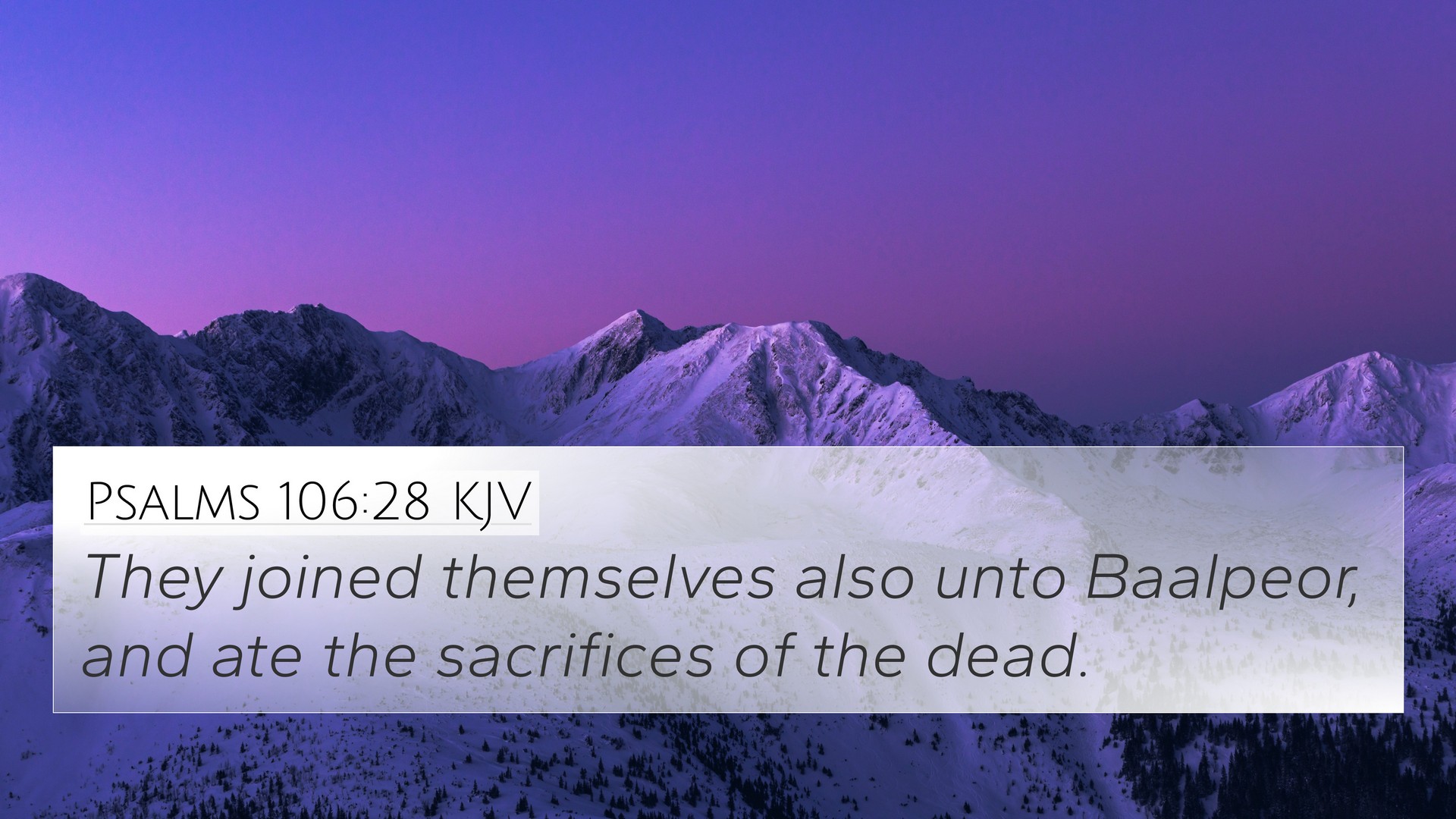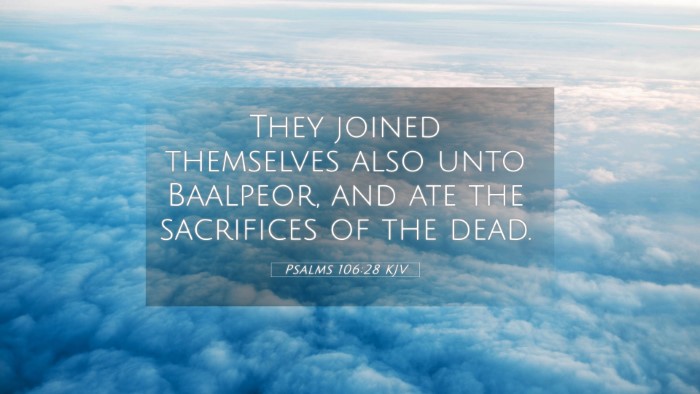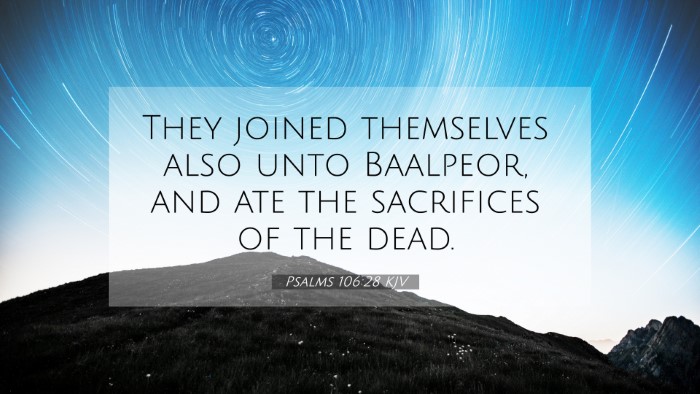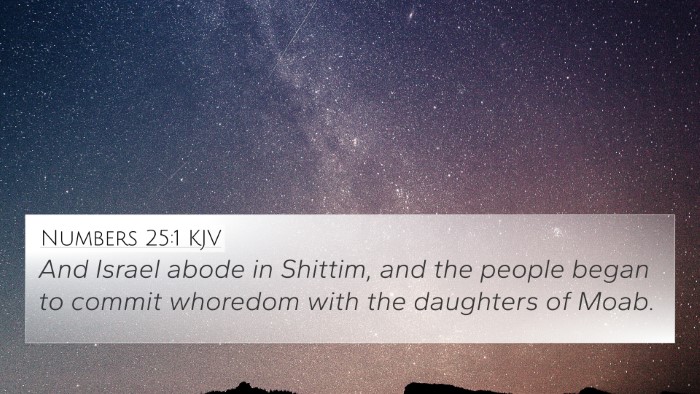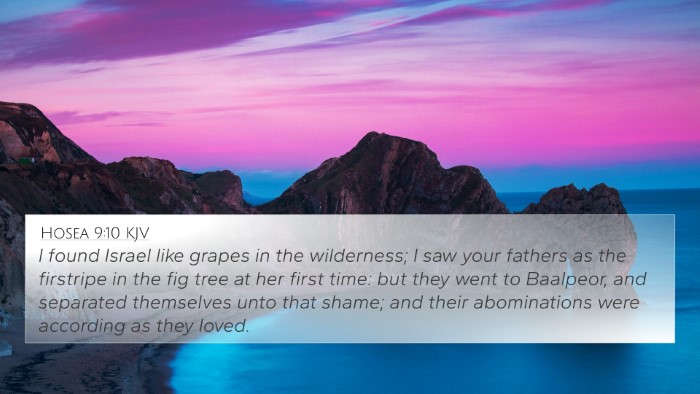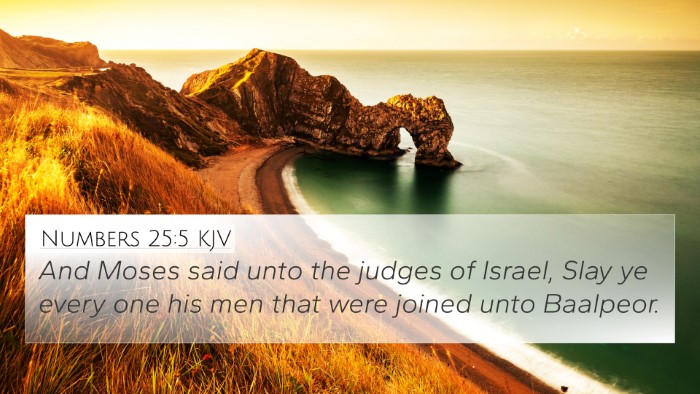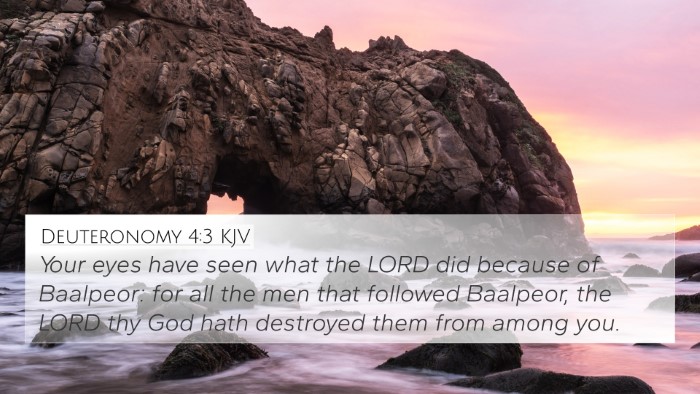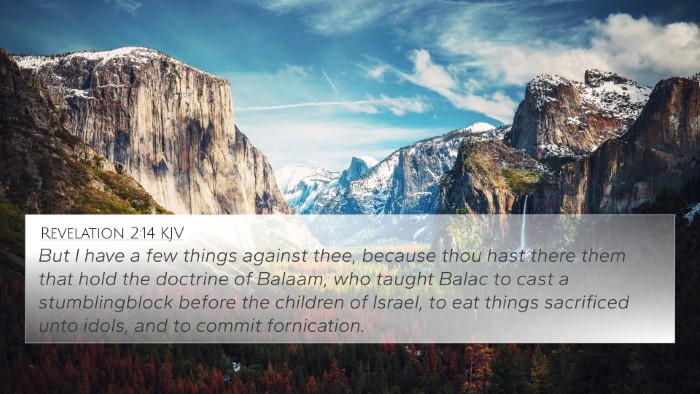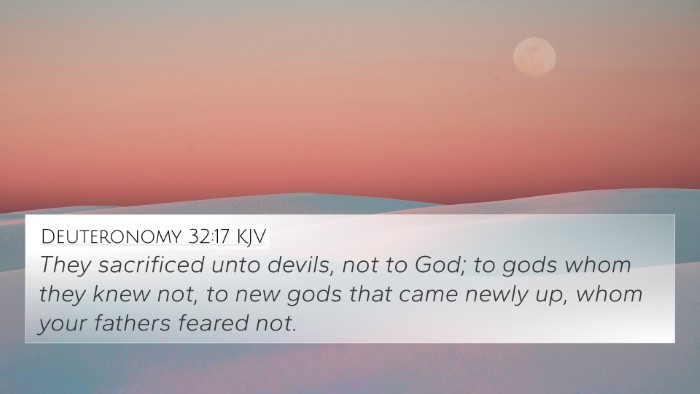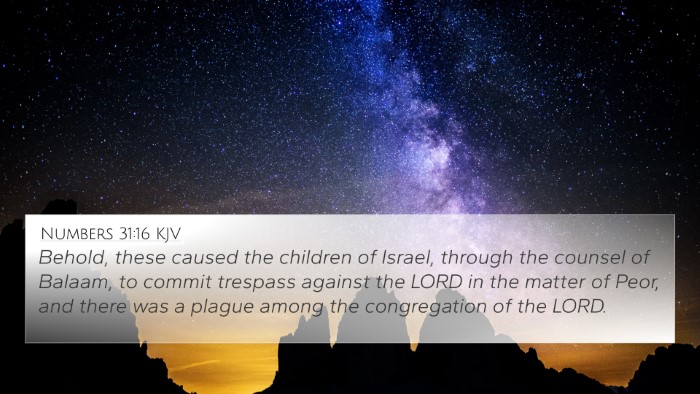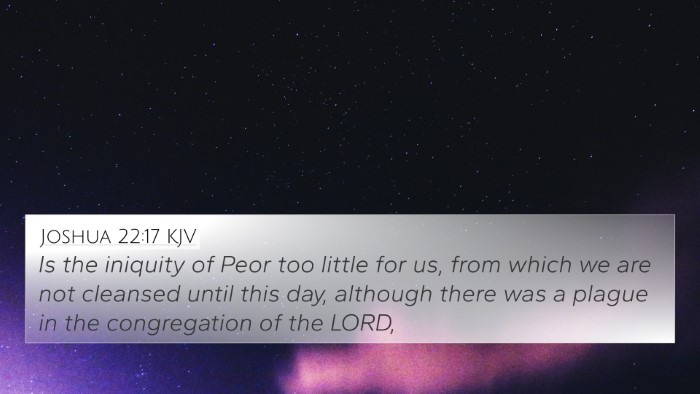Meaning and Interpretation of Psalms 106:28
Bible Verse: Psalms 106:28 - "They joined themselves also unto Baal-peor, and ate the sacrifices of the dead."
Summary of Biblical Context
Psalms 106 reflects on the history of Israel, particularly their repeated failures and sins against God. In this verse, the psalmist highlights a specific incident where the Israelites engaged in idolatry at Baal-peor, which involved worshiping a foreign god and partaking in pagan rituals. This act symbolizes a grave departure from their covenant with the Lord.
Insights from Public Domain Commentaries
Matthew Henry's Commentary
According to Matthew Henry, this instance emphasizes the Israelites' propensity to fall into idolatry and how they corrupted themselves by associating with the worship of Baal. He notes that their actions were not just external but reflected a deeper spiritual corruption, as they turned away from the living God to dead idols. The mention of "eating the sacrifices of the dead" suggests engaging in practices associated with death and pagan rites, illustrating severe moral degradation.
Albert Barnes' Notes on the Bible
Albert Barnes interprets the passage as a stark contrast between the true worship of God and the futility of idol worship. He points out that "Baal-peor" was a specific god worshiped by the Moabites, and the involvement of the Israelites signifies a breach of the covenant relationship established with God. Barnes emphasizes the serious consequences of such actions, including divine judgment and spiritual separation from God.
Adam Clarke's Commentary
Adam Clarke elaborates that the worship of Baal-peor involved licentiousness and immoral acts, reflecting the utter moral decay of the people. He interprets the "sacrifices of the dead" as symbolic of the lifeless nature of idols and points out that these sacrifices cannot bring true sustenance or life. He warns against the dangers of associating with practices that lead one astray from true faith.
Theological Themes and Connections
This verse presents a clear dichotomy between holiness and sin, faithfulness and idolatry. The act of joining themselves to Baal illustrates the seductive nature of sin and the call of God to remain pure and devoted. The interpretative analysis of this verse can be enriched through Bible verse cross-references that highlight both the consequences of idolatry and the call to faithfulness.
Bible Cross References
- Numbers 25:1-3: Describes the incident of Israelite men joining with Moabite women and worshiping Baal-peor, leading to divine wrath.
- Deuteronomy 4:3: Warns against following after foreign gods and the consequences of such actions.
- Psalm 106:14-15: Further emphasizes the ways the Israelites provoked God's anger through their lusts.
- 1 Corinthians 10:8: References the sexual immorality and other sins of Israel as a warning to the New Testament church.
- Revelation 2:14: Mentions the teachings of Balaam whereby idolatry and immorality infiltrated the Church.
- Jeremiah 11:10: Discusses Israel's return to the sins of their forefathers and their abandonment of God.
- Hosea 9:10: Compares Israel's idolatry to the early days of their history, showcasing their rebellion against God.
- Exodus 32:4: Talks about the golden calf, illustrating a similar instance of idolatry among the people of Israel.
- Isaiah 44:9-10: Outlines the futility of idol creation and worship, corresponding with the dead nature of Baal.
- 2 Peter 2:15: References Balaam's error, echoing the themes of idolatry and immorality prevalent in the church.
Thematic Bible Verse Connections
This verse connects to broader themes within scripture, particularly the constant battle between faithfulness to God and the allure of worldly distractions. Through cross-referencing Biblical texts, we can identify patterns of disobedience and the call to true worship throughout both the Old and New Testaments. Here are some ways to explore these connections:
- Identifying connections between Old and New Testament: The ongoing struggle against idolatry is seen from the Israelite experiences to the teachings of Christ about worshiping the one true God.
- Comparative study of Pauline epistles: Paul addresses the issue of idolatry and sexual immorality in his letters, showing the continuity of the struggle throughout biblical history.
- Bible verses related to specific themes: The themes of worship, idolatry, and faithfulness can be traced through various books of the Bible, enhancing our understanding of these crucial concepts.
Tools for Bible Cross-Referencing
To deepen your study of Bible verses that relate to each other, various tools for Bible cross-referencing can be employed:
- Bible Concordance: A useful resource for finding related verses and themes.
- Bible Cross-Reference Guide: Helps in identifying direct connections between passages.
- Cross-Reference Bible Study: Techniques that organize scripture analysis by themes and topics.
- Comprehensive Bible Cross-Reference Materials: Collections of cross-referenced verses organized by themes, topics, or teachings.
Conclusion
Psalms 106:28 provides a profound insight into the consequences of idol worship and the importance of remaining faithful to God. Through careful study and inter-Biblical dialogue, we can appreciate how this verse resonates throughout scripture, reminding believers of the perils of departure from true worship and the calling to holiness.
